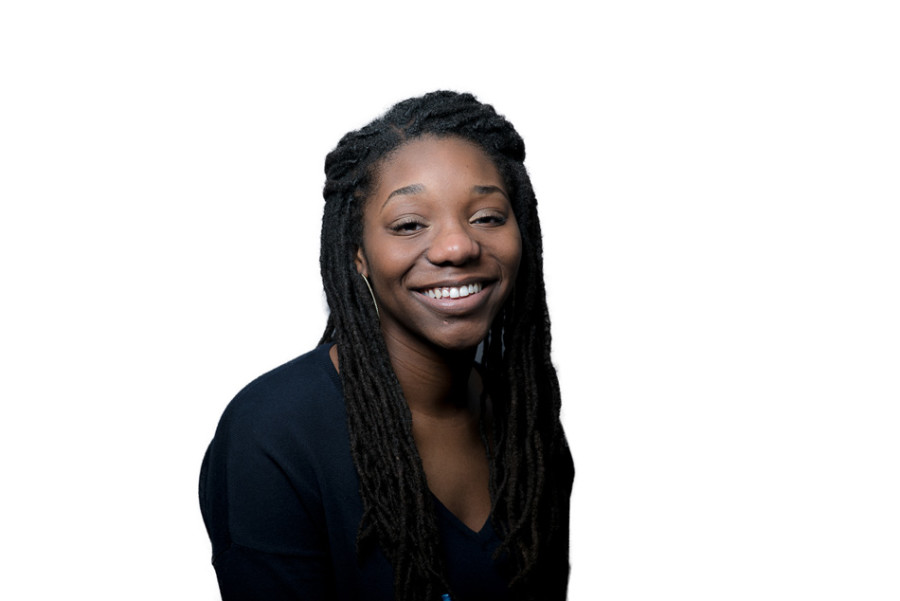The Spectrum: The obstacles to self-love as a black woman

January 19, 2015
The Spectrum
This essay is part of The Spectrum, a weekly forum in our Opinion section for marginalized voices to share their perspectives. To submit a piece for The Spectrum or discuss story ideas, please email spectrum@dailynorthwestern.com.
Until I came to college, I was the token black friend.
Like most Northwestern students, I was in advanced classes for about as long as I can remember. I didn’t always like being in these classes although I came to appreciate them in due time.
However, I was the only black girl in these classes and it wasn’t until high school that I really began to notice my “fly in a bowl of milk” status. I participated in a number of sports and extracurricular activities. I was a part of the local travel soccer team, a youth group and numerous school sports and clubs. In all of these groups I was the only black girl.
At first, I didn’t really mind being the token black friend. I spent the majority of my time with these pretty white girls and we had fun together. They all had shiny hair that they could curl and straighten effortlessly. They had light eyes with long eyelashes, thin pouty lips, narrow noses and slender builds. Now, insert adolescent Arielle Chase, this dark skinned black girl with full lips, a wide nose, long locked hair, short curly eyelashes and, of course, hips and thighs.
I didn’t look like them, but I wanted to.
I would look at them and see my own characteristics as inferior and unattractive. When I was a child I used to pray every night for hair that was naturally straight because I truly believed that my own hair was less beautiful.
The media does not help. Dark skinned actresses like Viola Davis now have a place in mainstream media but it has not come without unnecessary backlash. Though she played a sort of Mammy role in “The Help,” Davis is now the star of Shonda Rhimes’ production, “How to Get Away with Murder.” Many mainstream movies and shows have cast the black actress as the sassy and sexy sidekick but Davis has managed to overcome this stereotype.
But not everyone appreciated Davis’ accomplishment because some did not find Davis to be physically attractive enough for the part.
“Ignoring the narrow beauty standards some African-American women are held to, Ms. Rhimes chose a performer who is older, darker-skinned and less classically beautiful than Ms. Washington, or for that matter Halle Berry,” New York Times writer, Alessandra Stanley, wrote in a September article.
How many times have you read a statement like this about a white actress? When is the last time you read that a woman like Sandra Bullock was less classically beautiful than an actress like Anne Hathaway? Why is it that when a black woman with dark skin is cast, she is called less classically beautiful — according to what official source?
This comparison is typical of the black woman’s experience. Not only are black women often placed in situations where they are the only person of color, they are also expected to uphold certain European standards of beauty as well as serve as the prototype for what other black women “should” be like.
With the world telling black women that we are not beautiful or desirable enough for the broader (white) society and its standards, it is too easy to fall into the trap of not appreciating your own beauty. If you compare yourself to your white peers, you, as a person of color, will never understand what you specifically have to offer. At the end of the day you are still yourself. Don’t run from this; embrace it and enhance it.
It took some time, but I have since found a way to love myself so aggressively that it can make people uncomfortable. And there is nothing wrong with that. Here are some tips that helped me out:
- Understand that the beauty of another woman does not mean the absence of your own.
- The fuller your hair, the more versatile it is — trust me — so don’t get fed up too quickly.
- If you have no friends of your same ethnicity, make some. Having to explain how often you wash your hair can be annoying and you won’t have to do this with friends who look like you.
- Go on YouTube and look up videos of girls who look like you — their confidence is contagious and their ideas are amazing.
- Remember that the dominant look is not always the best look.
W.E.B. DuBois once said, “I most sincerely doubt if any other race of women could have brought its fineness up through so devilish a fire.” Basically, black women have been through a lot but we’re coming out of it strong. Being black in America is hard and being a black woman in America can be even harder. As a black woman, I speak from personal experience but other women of color experience a similar struggle. European standards of beauty are unfortunately the most accepted, but that does not mean that you need to assimilate. You are a queen and your unique appearance is important, so shamelessly flaunt it.
Arielle Chase is a Medill sophomore. She can be reached at ariellechase2017@u.northwestern.edu. If you would like to respond publicly to this column, send a Letter to the Editor to opinion@dailynorthwestern.com.


